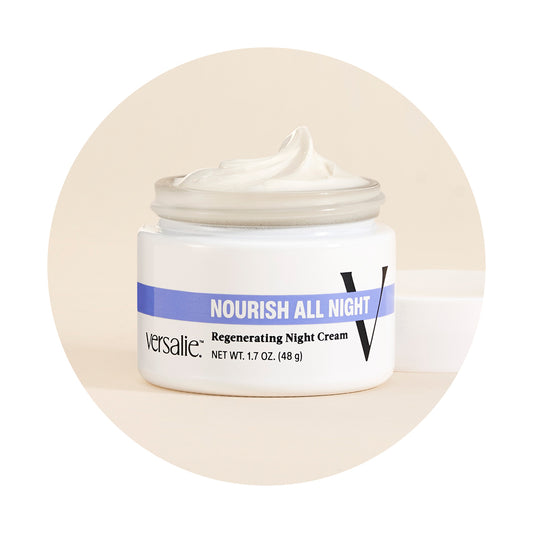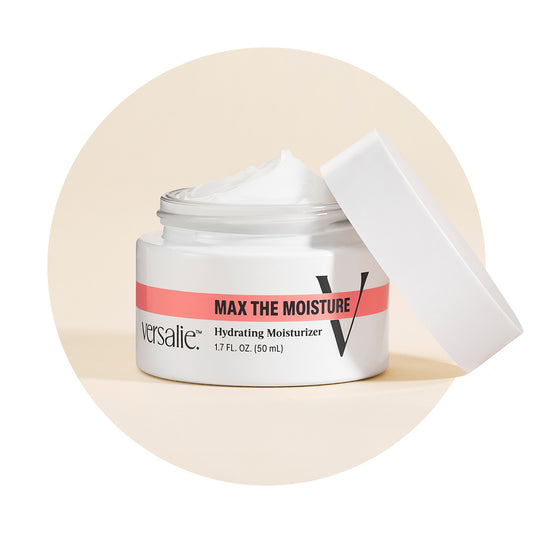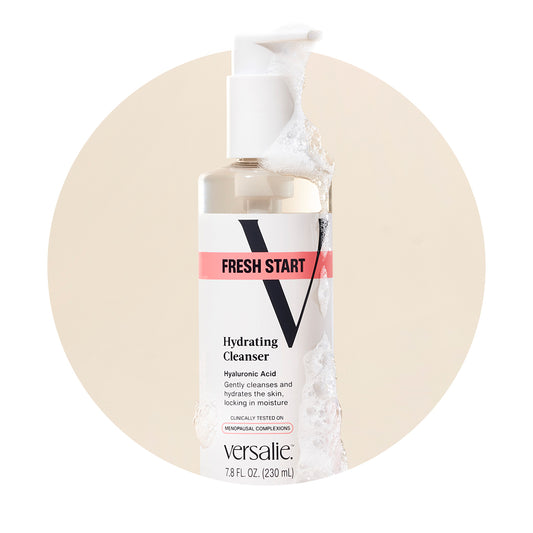Juggling family gatherings, work commitments, and holiday preparations can be overwhelming, but prioritizing your health is essential for enjoying the season to its fullest. While that can feel challenging with a full schedule of work events, dinners with friends, and family meals, you can enjoy all the fun of the holiday festive season while still keeping your health goals in mind.
In this article, we'll explore practical and achievable ways to stay healthy during the holiday season, helping you to not survive, but thrive throughout the season.
Prepare yourself mentally and physically for the holidays
It may seem strange to think about setting goals during the holiday season. But having goals around how you want to spend your time or how you want to feel at this time of year can actually help relieve some of the stress and pressure, reduce ‘decision fatigue’, and give you a framework to help you decide when to say ‘yes’ and when to say ‘no’. Goals for the holiday season may include:
- I want to spend quality time with my family.
- I want to decompress and destress.
- I want to be active with my kids.
- I want to completely switch off from work.
- I want to feel energized.
- I want to indulge.
- I want to feel gratitude.
For example, if you want to feel energized and stay active with your kids, it can help you make the choice to turn down a second helping of dessert or glass of wine. Switching off from work completely may mean setting boundaries with your work colleagues before the holiday break.
You can also consider approaching the holiday season with the question: Who do I aspire to be in these moments? Use this perspective as a guiding lens to help shape your behaviors and decisions. For example, you may want to be someone who:
- Is always calm in a stressful situation.
- Is grateful at the holidays.
- Prioritizes my health.
- Stays active over the holiday period.
- Does not drink alcohol.
- Doesn’t over-indulge.
A little preparation before the holidays can help you maintain your commitment to healthy habits, helping you have some foundational routines to fall back on, even during the busiest of times. Organizing grocery delivery so you have healthy options on hand, scheduling your workouts, and arranging your therapy sessions ahead of time can mean that your foundations stay solid, even in the midst of the holiday craziness.
Nutrition tips for the holidays
Control the controllables
It's unlikely that even the most social of us will eat out for every meal during the holiday season, so when you’re in control of what you’re eating, that’s the time to ensure you have healthy options. For most people, breakfast will be eaten at home. Choose healthy options such as wholegrain cereals, eggs, Greek yogurt, or a low-sugar smoothie. Combine that with fiber-rich fruits and vegetables for a balanced start to your day.
Eat what you love, leave what you like
It wouldn't be the holidays without a little indulgence, but overconsumption can leave you feeling lethargic and derail your health journey. Follow the mantra 'eat what you love, leave what you like' to avoid unnecessary consumption. For example, savor a delicious hot chocolate, but skip the eggnog if it's not your favorite.

Bring a healthy dish
Contributing a healthy option to family holiday meals or office potlucks can be a great way to ensure that you (and others) can enjoy at least one healthier dish. And it doesn't have to be a boring salad. Think vibrant roasted winter vegetables, curried squash, or sauteed greens with pomegranate seeds and toasted almonds.
Stay hydrated
This may seem simple, but between holiday coffee dates, post-work cocktails, and wine-filled family meals, you may forget to drink water. This can lead to a feeling of tiredness, brain fog, and even making us feel more hungry. Aim to drink a big glass of water upon waking, keep a bottle of water in your bag and in the car, and pair every caffeinated or alcoholic beverage with a glass of water.
Love on your gut
Our digestive system can be one of the first places we feel discomfort over the holidays. It can be caused by a number of factors including stress, extra sugar, too much alcohol, and being out of your normal routine. Our digestive systems play a key role in menopause health (read Gut Health and Menopause for more information), so it's important to show your gut some love over the holidays:
- Be aware of how much sugar and alcohol you’re consuming.
- Manage your stress (taking a few deep breaths before eating can be super helpful).
- As simple as it sounds, be sure to chew your food thoroughly.

Exercise tips for the holidays
As tempting as it is to spend the holidays curled up on the couch, regular exercise is an important part of staying healthy during menopause (and the holidays!). Research shows that those with high and moderate physical activity levels tend to have less severe menopausal symptoms compared to those who are less physically active. Here are some ideas to help you stay physically active during the holiday season. Be sure to check with your healthcare provider before starting a new exercise regimen.
Schedule your workouts in advance
Pre-booking and paying in advance for your workouts can help you stay committed to your exercise schedule. You could also schedule exercise dates with friends to help hold you accountable. Add these to your calendar as you would for an important meeting or social event. You could even suggest a fun workout or dance class as an alternative holiday get-together or a way of connecting before a big event.
Sign up for a turkey trot
Get the family together for festive fun by signing up for your local Turkey Trot! These are usually 5K or shorter and you can run, jog, or walk. It’s a great way to get some movement in, create great memories with your loved ones, and it could even become a new family tradition.
Move your body after a meal
One of the best ways to minimize blood sugar spikes (a key aspect of menopause health) is to fit in some movement after a meal. This doesn't have to be a full workout. You could go for a walk, do some air squats or lunges, or even just have a good, old-fashioned dance party.
Stress management
Poor stress management can lead to a whole host of health complications. Some studies show a possible correlation between stress, anxiety, and menopause symptoms worsening. You can also find out more about the complex interplay between stress and menopause in The Relationship Between Stress, Cortisol, & Menopause. Managing your stress at the holidays may seem like an impossible task, but even a few minutes a day can help benefit your health and your enjoyment at this time of year.
Set your boundaries
While it can feel hard to do at first, establishing boundaries with coworkers, family, and loved ones during the holidays is a crucial aspect of maintaining a healthy and enjoyable celebration for everyone. Clearly communicating your limits can help create a more positive and stress-free environment. Whether it's defining working hours, personal space, setting expectations for gift-giving, or delegating tasks, setting boundaries ensures that everyone's needs and comfort levels are considered.

Get grateful
Having a regular gratitude practice can be beneficial for many aspects of our health, but it can be easy to lose sight of the good among all the holiday stress and business. This festive season, try to implement a quick and simple gratitude practice either first thing in the morning or last thing at night. Aim to name 5 different things you're grateful for that day, and this can be rooted in the small things (a delicious cup of coffee, a kind word from a friend) and the big things (your health, your family, etc).
5-minute meditation
Starting a meditation practice can feel overwhelming, but it doesn't have to be long or complicated to be effective. Even a 5-minute meditation practice can be beneficial for stress relief, as can intentional breathing exercises.
Focused breathing, such as deep belly breathing or diaphragmatic breathing, involves inhaling slowly through the nose, allowing the lungs to fill deeply, and exhaling gradually through the mouth. This deliberate and mindful approach to breathing activates the body's relaxation response, reducing the production of stress hormones and aiding in nervous system regulation.
Box breathing, also known as square breathing or four-square breathing, is a simple and effective relaxation technique. It involves a specific pattern of breath control that helps reduce stress and promote a sense of calm. Here are step-by-step instructions for box breathing:
- Find a comfortable position. Sit or lie down in a comfortable position. Make sure your spine is straight, and your shoulders are relaxed.
- Close your eyes (optional). If you feel comfortable, close your eyes to minimize external distractions and focus inward.
- Breathe in (Inhale). Inhale slowly and deeply through your nose. As you breathe in, count to 4 in your mind.
- Hold your breath (Pause). After inhaling, hold your breath for a count of four. Keep the air in your lungs without straining.
- Exhale slowly (Exhale). Begin to exhale slowly and completely through your mouth. Again, count to 4 as you release the air. Try to empty your lungs as much as possible.
- Pause again. After exhaling, pause for another count of 4. Keep your lungs empty during this pause.
- Repeat the process. Continue the cycle by inhaling for 4 counts, holding for 4 counts, exhaling for 4 counts, and pausing for 4 counts. This creates a "box" pattern with each phase taking 4 counts.
- Continue for several rounds. Practice box breathing for several rounds, allowing yourself to become more relaxed with each breath.
- Adjust the count, if needed. If a count of 4 feels too challenging or too easy, feel free to adjust it. The key is to maintain a consistent count for each phase of the breath cycle.
Learn more about Jennifer Hanway and our other Versalie advisors.








